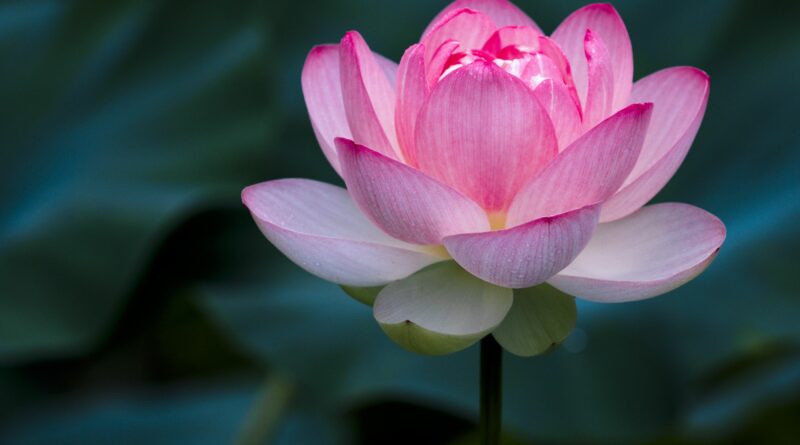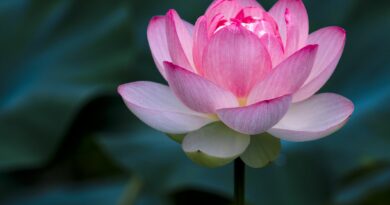Worry Vs. Heedfulness
Worry vs. Heedfulness
November 16, 2019
Bring your attention to the breath. Try to breathe in a way that feels good. And try to stay with the breath all the way in, all the way out, each time you breathe in, each time you breathe out.
What often happens, though, is that you stay with the breath a couple of times, and then another thought comes in and it seems more interesting, more important, and you go with that. It’s called a hindrance. It’s the normal way of the mind, and in everyday life it doesn’t seem like much is being hindered. But when you’re trying to lift the mind to a higher level, thoughts like this can really get in the way. Some of them are problems in daily life as well: Ill will is a problem. Restlessness, worry, uncertainty, sleepiness: These are problems. Part of the issue is that there’s an aspect to them that’s sometimes skillful. With uncertainty, sometimes it’s wise to be uncertain about things—in other words, not to commit yourself too quickly. With worry, there are some things that you should think about, prepare for.
There’s a sutta where the Buddha talks about future dangers. A monk should contemplate the fact that death can come very easily, aging can come, illness can come very easily. Famines can happen. Societies can break down. The Sangha can split. When any of these things happen, it’s going to be hard to practice. And there will be other difficulties as well.
The Buddha’s response is not to pretend that these dangers are not there, but to prepare for them wisely. This is the difference between worry and heedfulness. Worry just sits there stewing and spinning its wheels, whereas heedfulness says, “Okay, there is a danger, but there’s something that can be done about it.” It requires a level of confidence that there is a way out, and it also requires that you put the effort in to develop the skills you’ll need to protect you.
In the case of the monk reflecting in the forest about the dangers that can come in the future, the resolve is: “I should focus on trying to attain the as-yet-unattained, to reach the as-yet-unreached, to know and to see what things I haven’t known and seen before”—in other words, to find something in the mind that will not be touched by the dangers. Now, that may seem far away, because the Buddha’s talking about nibbana. A little bit closer are the skills you can develop as you meditate—and in particular, wisdom in terms of where you look for your happiness and for your security.
When you realize that the most important things in life are not so much your work, your family, your relationships, but rather the qualities you build into your mind, that realization puts you on the right course. When you have concentration, for instance, even though it may not be perfect, if you’ve got it as an internal resource, as a source of nourishment inside, then when things go bad outside, at least you’ve got something to turn to. When you have your virtue, when you have your endurance, when you develop the quality of determination, all these perfections are things you can hold on to.
That may be one of the reasons why the Pali name for these qualities is parami: When you hold on to them, they take you over to param, the other side of the flood that, if you’re not developing the perfections, can carry you away.
So, when you find the mind worried about issues in daily life, then whether you’re meditating or not, remind yourself: Where is true security going to be found? It can be found: That’s the confidence. The next question is: What do you do to find it? That’s when you direct your worry to a skill—and it’s an inner skill. If you let yourself be concerned totally about things outside, you’ll never find any security.
I remember talking to someone who was describing the behavior of the people on Wall Street back before the big crash. They knew that a big crash was going to come from all their risky behavior, so everybody had his or her “nut” as they called it—like a squirrel—stashed away someplace where they felt it would be safe. He described to me what some of those safe places were, but they didn’t strike me as very safe at all.
You think about the survivalists and all the food that they stash away. I know someone who’s got a whole three months’ worth of food stashed in his basement. But if things break down and your neighbors find out that you have food, do you think you’ll be able to keep it for three months? All these provisions we make are like putting up a cardboard wall to keep the sea away when the sea is rising. You’re not going to find security there.
Which means that, as you look at your body, you say, “Okay, I can’t rely on this body to provide security in and of itself, but I can use the body to develop virtue, concentration, discernment, and those are the things that will provide security.” Use the body to be generous, use the body to practice the precepts, use it as your topic of concentration and as your object of discernment.
Because as you focus on the body, you begin to realize you can see the mind’s defilements right here in the present moment very clearly. They all come gathering around right here. If there’s pain in the body—or if there’s concern about the body’s getting sick, the body’s getting old—your fear and worry and frustration will gather right here. To counteract them, you can engage in the reflection we chanted just now on the thirty-two parts of the body. You realize there’s not much there in and of itself. And if you hold on to the body for its own sake, then you’ll become like those people who die and then become worms in their own corpses.
But if you use the body as a tool, you find it has a lot to offer. So think of it as a tool. It’s not your haven but it can be your set of tools for finding a haven inside, in the qualities you develop in the mind. And have a lot of confidence in those qualities. There’s so much about the future that you can’t know, but you do know that if anything unexpected comes up, you’re going to need mindfulness, alertness, concentration, discernment—all the good qualities of the mind. Those will be your refuge. So, when you find the mind is consumed by worries, stop and think for a minute: What can be done? What can I do right now? That’s what you should ask yourself.
Of course, right now as you’re meditating, the thing to do is to develop these qualities. But even as you’re out in daily life, remind yourself that there’s a difference between worry and heedfulness. Worry is a hindrance. Heedfulness is the source of all things that are skillful. And what heedfulness implies is that there is a way out. If there were no way out, then being heedful wouldn’t accomplish anything. The assumption is that there is a way out, there is a way to safety, and if you’re really heedful, you’re going to devote this moment right now to developing the qualities that’ll open that way and make you safe.
So the difference lies, one, in the confidence that there is a way out; and two, in actually working on the skills that you’re going to need. That’s how you turn worry into something that’s actually skillful—something that, instead of eating away at the mind, actually provides it with a place that’s secure.



